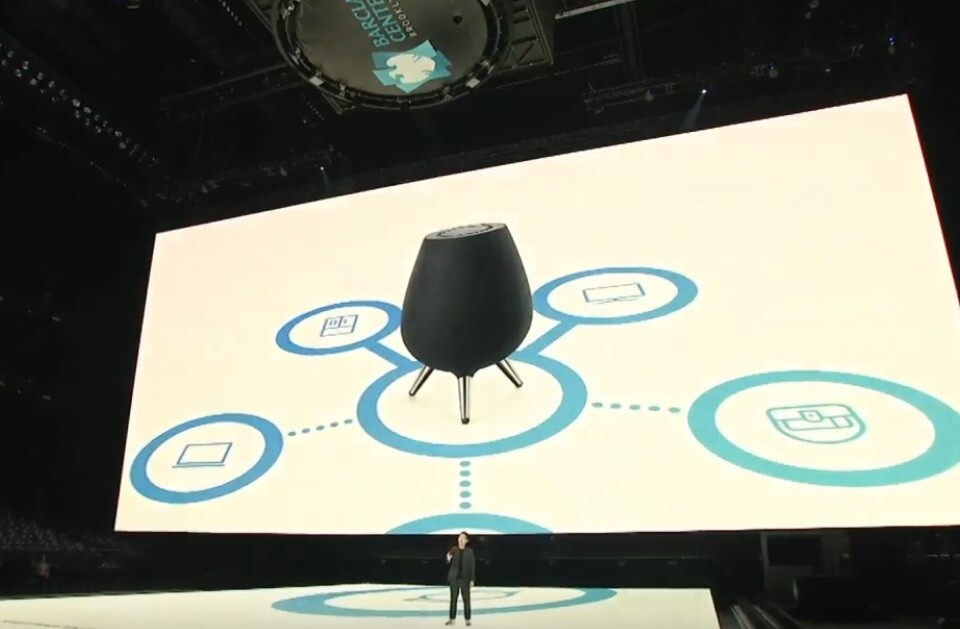
You’re back! If you liked last week’s edition and are back for more, this week we’ve been reading a lot about business and economics – including how a certain alcoholic drink might boost your ability to be better at it (or life, in general).
For the uninitiated (go back and start at post one, please) the team at TNW has made a New Year’s Resolution to read a bit more. So every week, a select number of our team will share with you what’s currently living on their nightstand, or saved in Pocket, or is sitting in that browser tab begging to be read.
Why tech firms need geopolitical risk consultants – Milena Rodban
Before I joined tech, I was at home in the sphere of international relations. Milena Rodban marries both sectors in this piece about tech firms and political risk.
Clarity of writing and wit withstanding, I recommend this post all the goddamn time because it touches an increasingly important topic that I don’t think appears on our feeds enough.
Rodban introduces the problem early on with a deluge of examples. The tech sector is full of idealists with big plans and big goals, but to be truly effective, they need to be knowledgeable and aware of the power structures at large.
She writes: “The tech sector’s belief that it is insulated from most types of political risk is an illusion, and a dangerous one at that.”
– Jennifer Ho, Content Marketing for Index.co
Think Like a Freak: The Authors of Freakonomics Offer to Retrain Your Brain – Steven D. Levitt, Stephen J. Dubner
For the first time in my adult life, I had the pleasure of unplugging for a bit and sitting by the pool to read an actual book. My pick – ‘Think Like a Freak’ by the people behind ‘Freakonomics.’
I cannot say enough about it. From lifehacks to global transformations, Levitt and Dubner offer a new way to problem solve. With real life examples such as being outsmarted by a potty-training three year old, to the upside of quitting and learning to say ‘no,’ this book literally changed my perspective on life, relationships and business… as it will yours.
– Lauren Gilmore, Commissioning Editor
Study: Drinking Champagne Can Improve Memory And Prevent Dementia – Newsner
Like you need an excuse to drink Champagne!?! However, now you have one.
According to Reading University’s study Having one to three glasses of champagne is good for your health! It’s rich abundance of Phenols will improve memory retention and prevents diseases such as dementia and Alzheimer’s. However, if sounds to good to be true it probably is, which is why I did a quick cross -check to see if there is any truth to these wishful statements.
Turns out the university may have its study (performed solely on rats), but doctors and the English government aren’t quiet ready to say “a drink a day will keep the dementia away.” So whilst it is fun to imagine that we could chalk up our drinking habits to healthy habits it is not quiet viable in humans yet.
Just in case, I will be preemptively imbibing with my weekly champagne dosage. So cheers, to your good health!
– Brittany Emery, Campaign Manager
73 Insightful “How” Sales Questions That Get Buyers Talking – Hubspot Blog
You can always improve your sales pitch. It is good to watch other people on a sales call, it helps if you record your own calls to study them later, some even still use the “talking to the mirror” technic.
I always pick up articles that can help me improve my sales skills and can add new ones. I found this post interesting because it doesn’t just give a technic, it sets kind of a mindset. It inserts the “how” in your ideas and after reading through all the 73 examples, you realize how useful that is. This is a great article to find out how to get your buyers talking by asking the right questions.
The questions it offers are sorted into very helpful categories like ‘Qualifying,’ ‘Closing’ and the crucial ‘Addressing Resistance and Objections’. But you’d be surprised that the most important ones are the ‘Questions to Ask Yourself’.
– Markus Leming, Business Developer
This is a #TNWLife article, a look into the lives of those that work at The Next Web.
Get the TNW newsletter
Get the most important tech news in your inbox each week.




